Gallery: Life of the Costa Rica Margin Hydrothermal Seep
Beauty of a Tube Worm
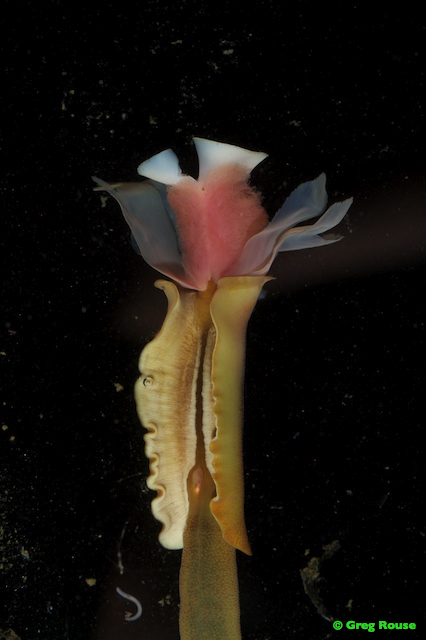
Lamellibrachia barhami, a species of tubeworm that lives at both hydrothermal vents and methane seeps. This ‘foundation’ species forms giant bushes and massive meadows at Jaco Scar on the Costa Rica Margin.
Tube Worm Bush
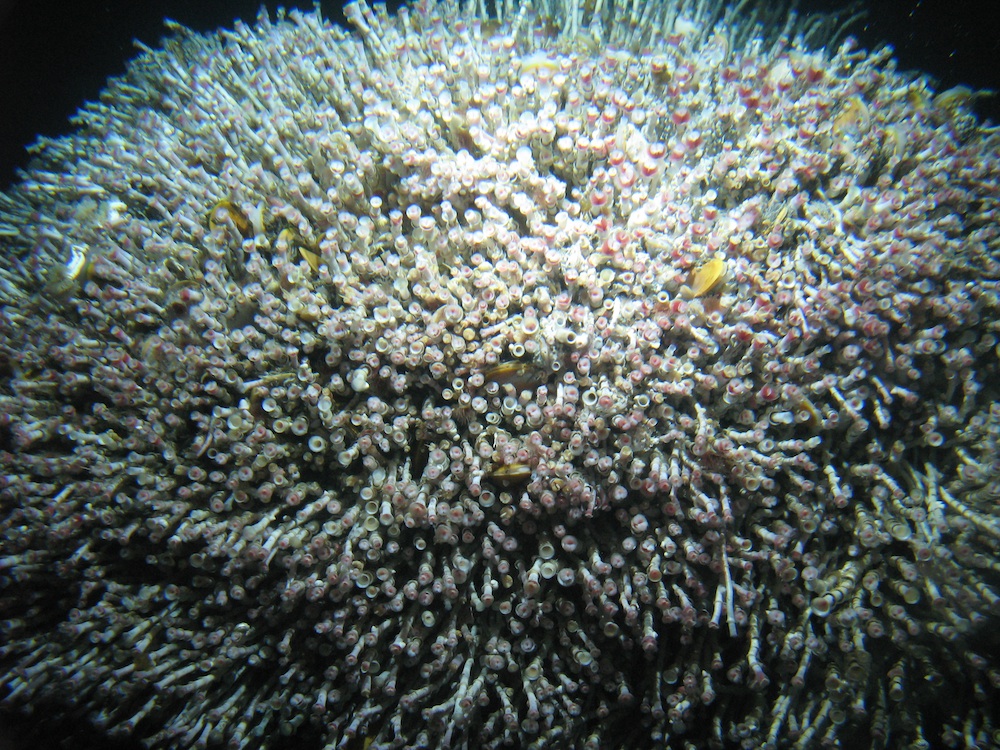
Mussels and tube worms cluster together in enormous bushes around the Costa Rica margin 'hydrothermal seep.' Researchers estimate that more than 14,000 tube worms make up this enormous bush.
Meadows of Tube Worms
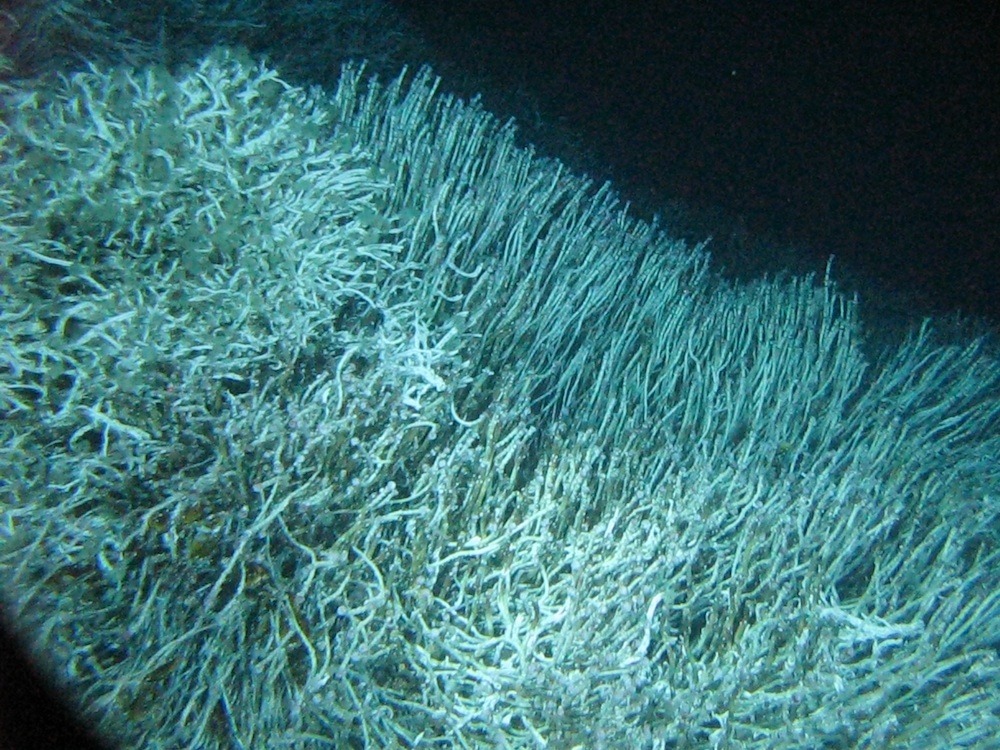
At the methane-rich hydrothermal site, tube worms dominate the landscape.
Living Sea Floor
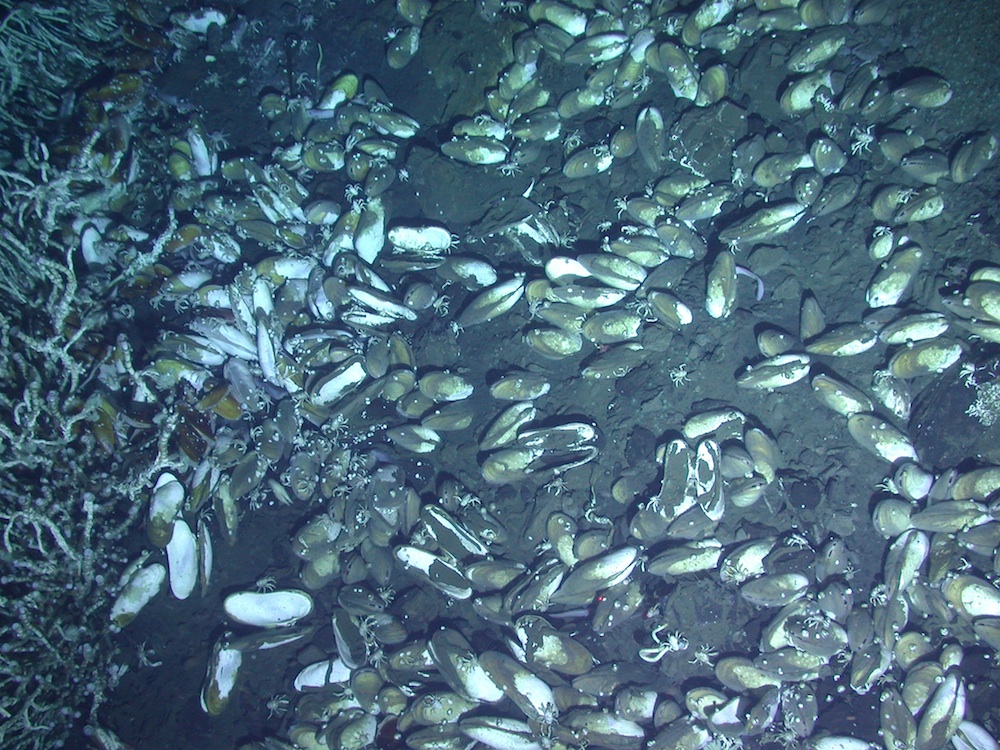
Dense beds of crabs crawl with snails and galatheid crabs.
Clam's Life
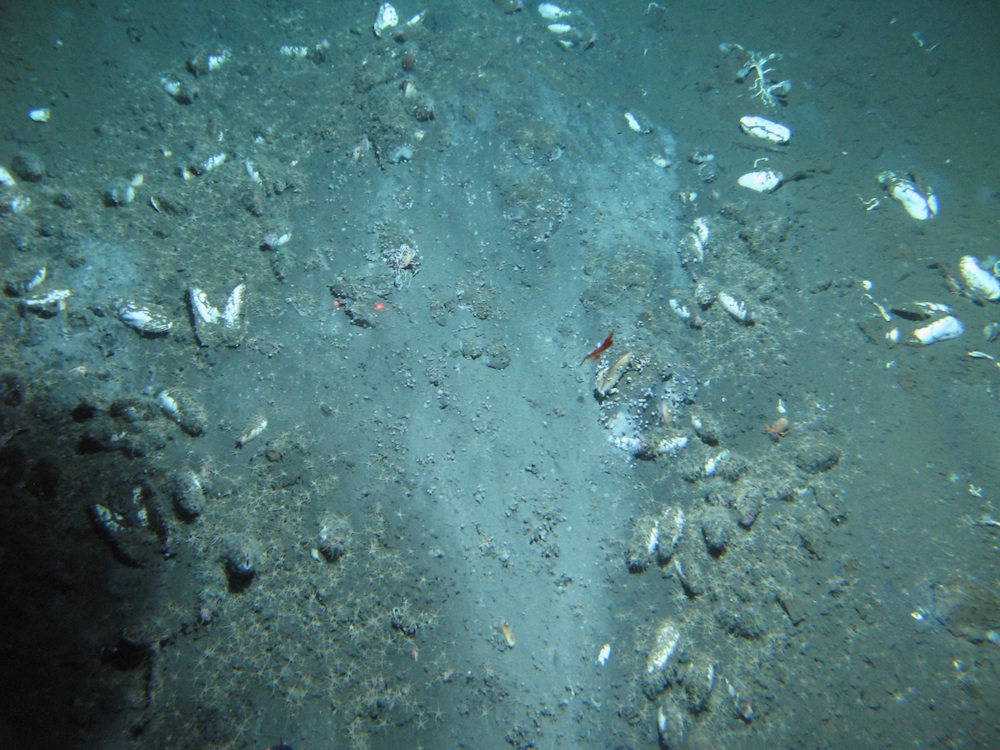
Brittle stars, snails and clams as seen from the submersible vehicle Alvin at the vent site.
Sabellid Worm
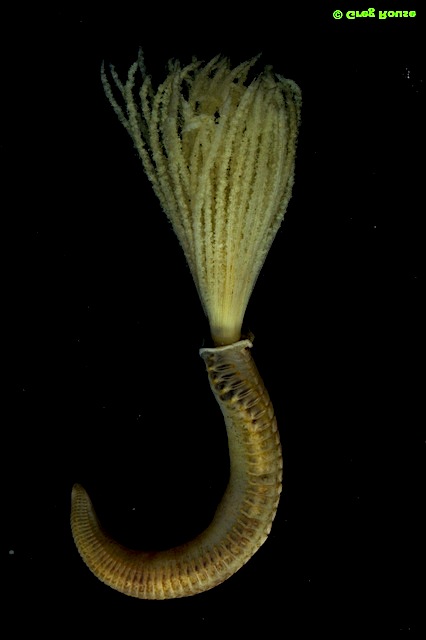
A sabellid worm found at the hydrothermal seep area.
Archinome
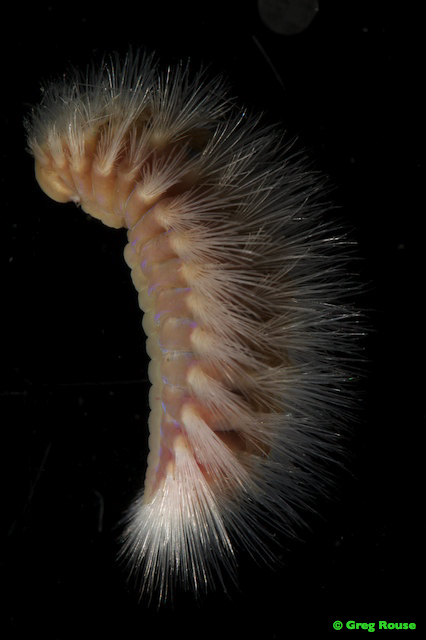
Archinome, another wild marine worm found at the Costa Rica margin site.
Sign up for the Live Science daily newsletter now
Get the world’s most fascinating discoveries delivered straight to your inbox.
A Handful of Tube Worms
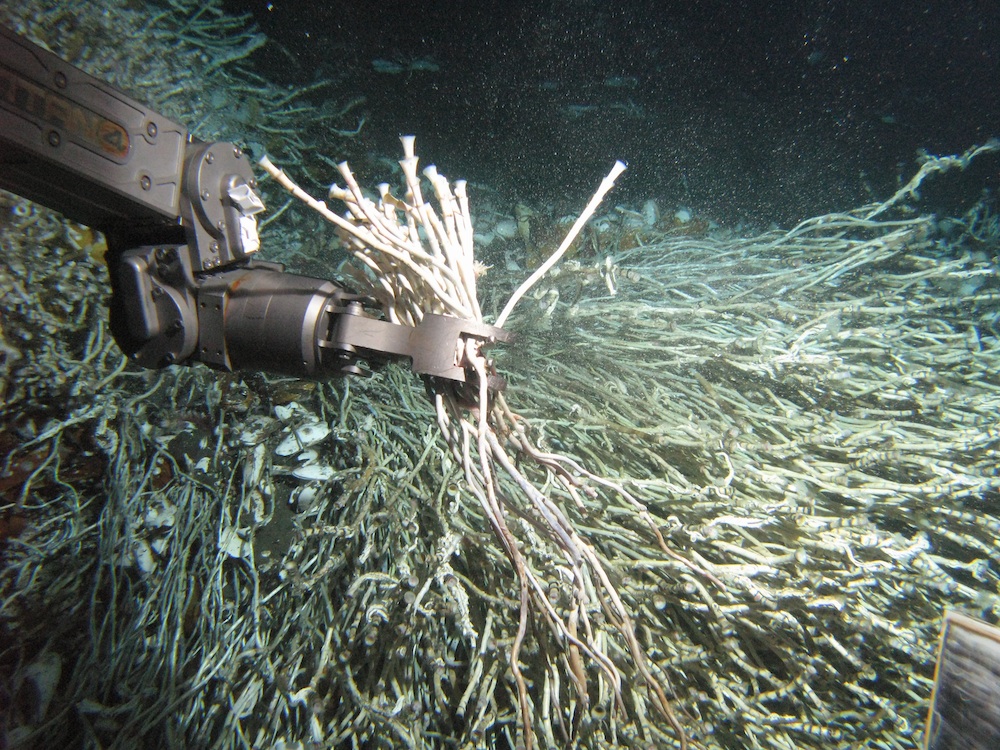
The remote arm of the submersible Alvin grasps a sample of tube worms for analysis.
Shy Fish Among Worms
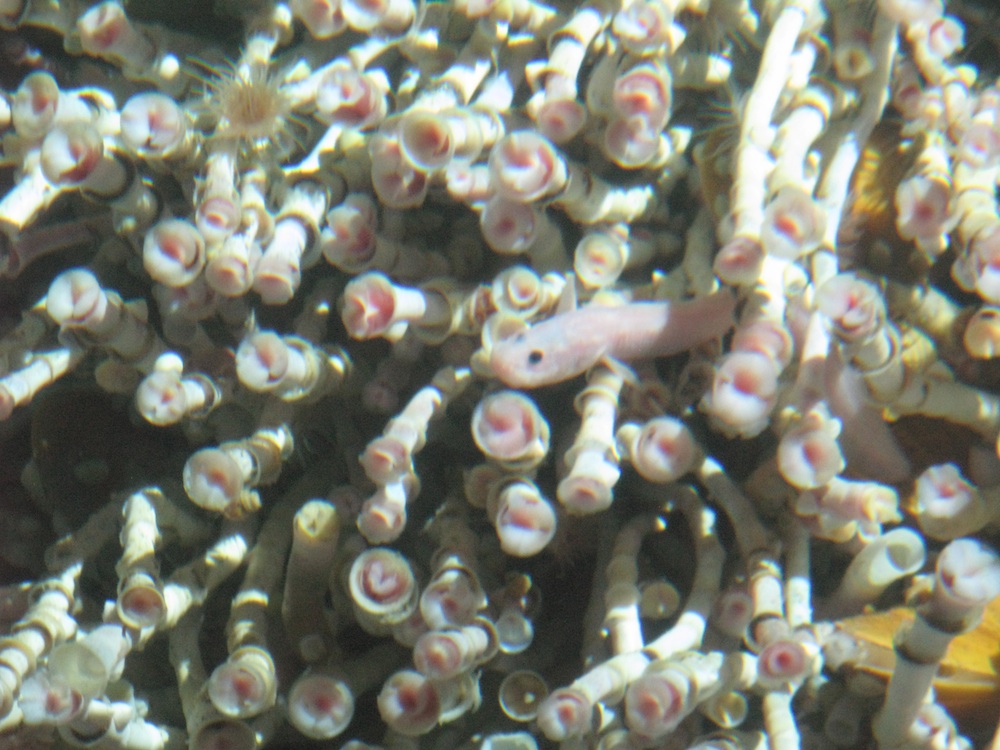
A zoarcid fish peeks out from the safety of a tube worm bush.
Giant Tube Worm Cluster
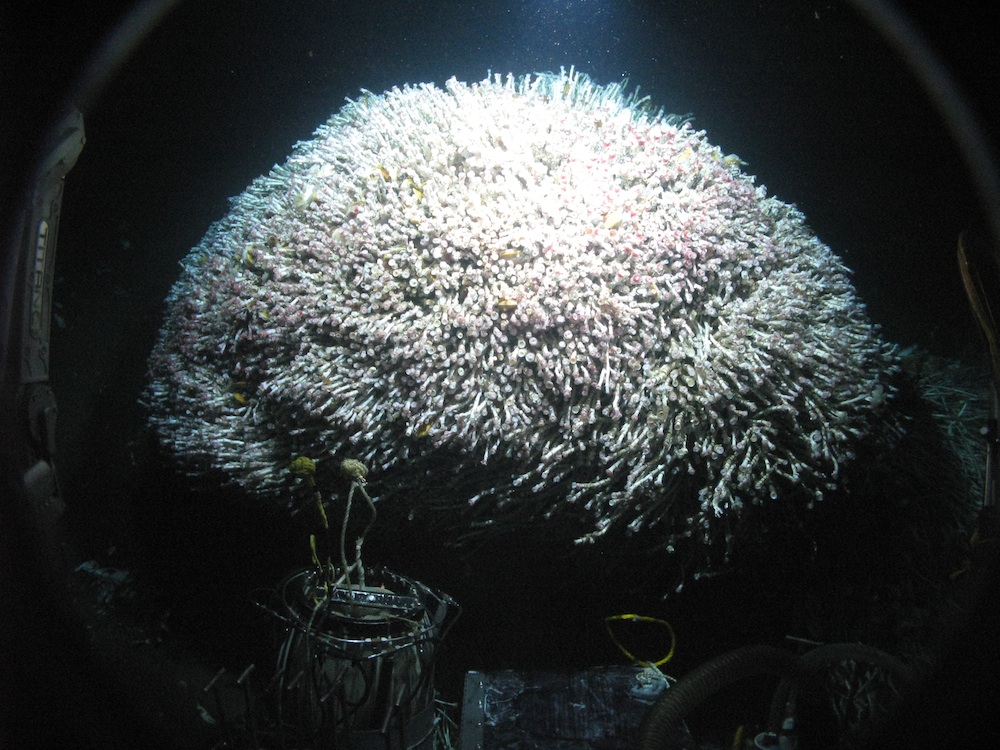
An enormous cluster of tube worms at the Costa Rica margin vent/seep area.
Symbiotic Relationship
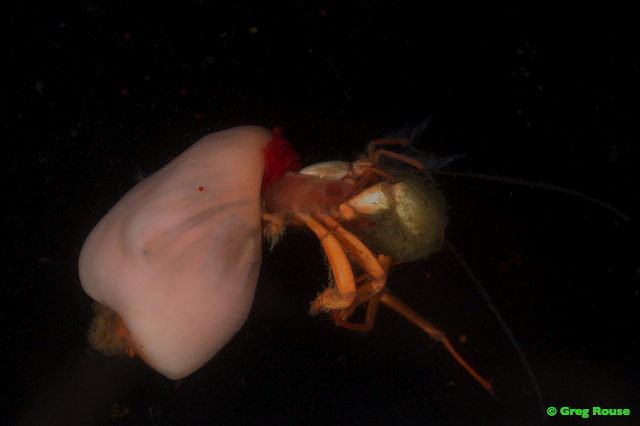
A hermit crab in a symbiotic relationship with an anemone. The crab uses the anemone as a shell, protecting the bright red crab eggs visible tucked into the anemone.

Stephanie Pappas is a contributing writer for Live Science, covering topics ranging from geoscience to archaeology to the human brain and behavior. She was previously a senior writer for Live Science but is now a freelancer based in Denver, Colorado, and regularly contributes to Scientific American and The Monitor, the monthly magazine of the American Psychological Association. Stephanie received a bachelor's degree in psychology from the University of South Carolina and a graduate certificate in science communication from the University of California, Santa Cruz.









